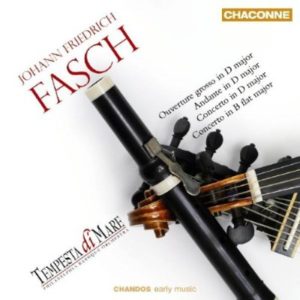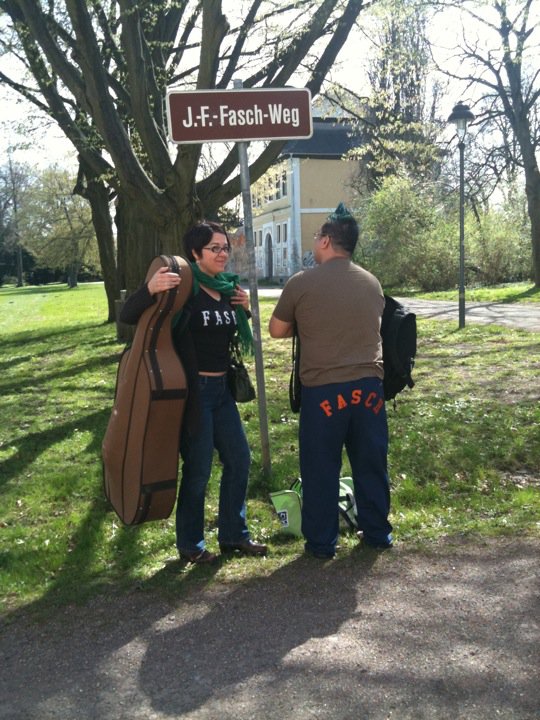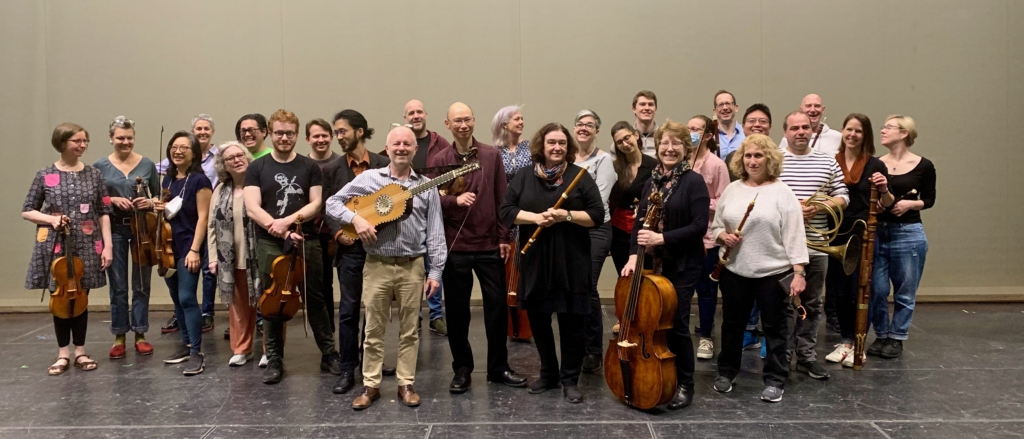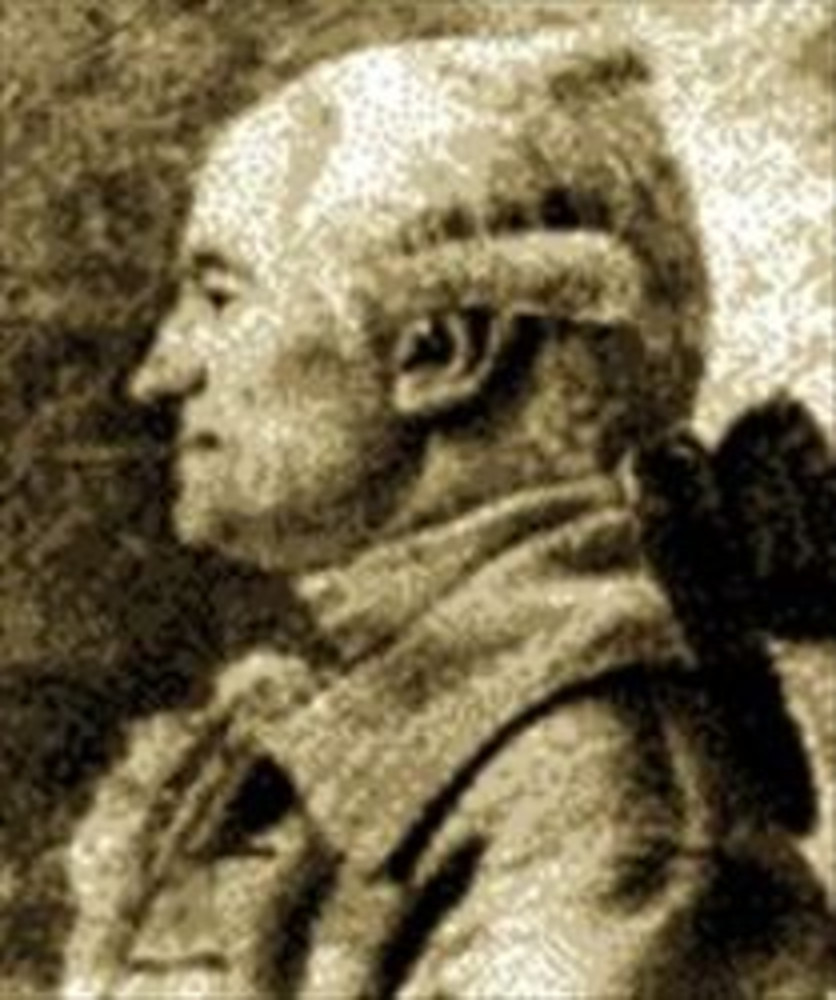2008-2023 | 15-year Anniversary

It’s a relationship that’s just getting better, and 2023 is its Crystal Anniversary. Fifteen seasons ago, fresh in love with the music of German high baroque master Johann Friedrich Fasch, Tempesta di Mare put on its first all-Fasch performance.

In the years since, the love has only grown. So far, Tempesta’s story with Fasch includes three CDs for the British label Chandos (Johann Friedrich Fasch Orchestral Works, Vols. 1, 2 and 3), national and international tours featuring Fasch, and the continual vibrant presence of Fasch on Tempesta’s broadcasts and Philadelphia concert series. Over the years they’ve presented 25 of Fasch’s orchestral works, 17 of which were modern-time world premieres.
The Fasch Files: Philadelphia, Zerbst, Berlin

A new installment of the Tempesta/Fasch affair opens this weekend, when Tempesta premieres four more Fasch gems in Philadelphia and Wilmington. Then, later this Spring, Tempesta travels to Germany to headline the 2023 International Fasch Festival and receive the Fasch Prize from the city where the composer spent most of his professional life, Zerbst, in Anhalt-Saxony. While there, Tempesta will have the thrilling chance to record their fourth CD of Fasch first recordings for Chandos in one of the actual halls Fasch would have known, Zerbst’s Reithalle. And speaking of thrilled, they’ll also be taking their new all-Fasch show, The Fasch Files, to Berlin, performing in the Chamber Music Hall at the Berlin Philharmonic on June 17.
Fifteen years ago, Fasch’s orchestral music was scarce on concert stages, if not more-or-less unknown. Now, thanks in large part Tempesta’s interest and discerning ministrations, Fasch’s music—long buried in history—has begun to reclaim the stature it enjoyed in his lifetime.
Finding the missing Piece in the puzzle
It’s quite a turnaround of fortunes for Fasch, whose work slipped into obscurity in the centuries after his death—as is true, after all, of almost all 17th– and 18th-century composers not named Bach or Handel. Reviving Fasch has been important in returning him to his proper place in the musical canon where he fills a crucial gap between the baroque and classical styles.
But reviving Fasch has been every bit as important, or maybe more, in the musical lives of Tempesta di Mare and its players. Delving deeply into Fasch’s work and his world been an important force in the orchestra’s own self-actualization. As Artistic Directors Gwyn Roberts and Richard Stone see it, playing Fasch has paid back many, many times over.
Writing for the top Brass
They knew it would. Back in 2006, when Gwyn and Richard were more-or-less trolling the waters for worthy candidates to revive, Fasch clicked from the start. With concertmaster Emlyn Ngai, they had been mulling over ways showcase to Tempesta’s distinctive ensemble sound of winds and strings, a hallmark of Fasch’s music. For one thing, although employed at the Zerbst court, Fasch contributed music to and was a particular favorite of the court orchestra in Germany’s cultural capital, Dresden—an ensemble that mustered the best string, woodwind and brass players in Europe. And as Richard put it, “Our players love Dresden repertoire. It gives them something to really sink their teeth into.”

But even more, because his work was so little-known, Fasch came to Tempesta with no modern performance history with which to reckon, no well-known interpretations to provide guidance or perhaps to mislead. Performing Fasch was a tabula rasa on which Tempesta could write their own perceptions and intuitions, drawing on their considerable and growing knowledge of the environment that produced him. They could play their own Fasch, experimenting and growing as an ensemble in the process. They are now among the premiere interpreters of his work worldwide, and bar none in the US.
His writing for winds is extraordinary. Full of surprises as he mixes and matches in every conceivable combination.
Gwyn Roberts, Tempesta’s principal flute and recorder player
Gwyn refers to his Orchestral Suite in E-minor (one of the pieces Tempesta is premiering this weekend and will be taking to Germany), where Fasch—who else?—twines a flute and bassoon trio into an oboe and bassoon trio running concurrently. It’s a special moment for the five intertwined but sonically distinct voices. That’s Fasch. That’s what makes you keep falling in love with him.
Diamonds are forever

As Tempesta and Fasch head into their fourth quinquennium together (that’s 15 years), the composer has become a constant for the group. Fasch is part of their identity—but at the same time, he’s never old hat. On this anniversary, think of Fasch as a crystal: glinting, turning, shooting out all the colors of the rainbow, rock solid and always new.
Diamonds are a crystal, of course. And diamonds are forever.
Anne Schuster Hunter is a writer and art historian living in Philadelphia, www.anneschusterhunter.com.
